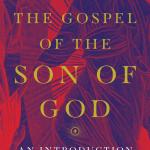Brandon D. Crowe
The Hope of Israel: The Resurrection of Christ in the Acts of the Apostles
Grand Rapids, MI: Baker, 2020.
Purchase through Baker or Koorong.
The Hope of Israel t0 highlights the focus in Acts on the resurrection of Christ, showing how this theme exposits and explains the theology of Acts.
His thesis is that “the resurrection of Christ is one of the major emphases of Acts, which unifies and provides coherence for the theology of Luke’s second volume” (p. 5). Importantly, the apostolic speeches as they major on resurrection always end with an exhortation, one must believe and repent because Jesus lives (p. 6).
The first part of the book demonstrates the centrality of the resurrection in Acts. The second half teases out its implications in more detail, including how the resurrection is the major turning point of redemptive history, how it relates to early Christian exegesis of the Old Testament, and how the resurrection emphasis of Acts coheres with the wider New Testament canon. This first major book-length study on the theological significance of Jesus’s resurrection in Acts will appeal to professors, students, and scholars of the New Testament.
Crowe does an admirable job of trying to balance a Reformed ordo salutis with a Lucan historia salutis. He recognizes, at least, that the subjective experience of salvation for each convert in Acts is different – I’d push harder on this and say there are objective differences, such as when one receives the Spirit, before baptism, at baptism, or after baptism, etc. There’s a good discussion of justification and forgiveness, though I think Crowe is trying to Paulinize Luke’s discourse here a bit too much. I’m pretty sure Luke would rather say, “God cleansed our hearts by faith” (Acts 15:9; 26:18) rather than “God justified believers by faith due to the imputation of Christ’s righteousness” – even though they are not mutually exclusive.
There’s an excellent discussion on how Acts floats in its position in ancient collections of the New Testament, sometimes located with the Gospels, with Paul’s letters, or with the Catholic Letters. Helpful too is the repeated effort to anchor resurrection faith in a positive relationship to the Old Testament and the motif of fulfilment. Good too on the place of resurrection in early Christian theology. (1) Affirms the real humanity of Jesus; (2) Affirms the goodness of creation; (3) Affirms the normativity of the Old Testament and its continuing view of God; (4) Points to the public nature of Christianity; (5) Firstfruits of the general resurrection.
A good read overall, really unpacks resurrection in Acts, definitely worth reading or assigning to students if you are studying Acts.
Readers who like this volume, should also check out Alan Thompson’s Acts of the Risen Lord Jesus.












